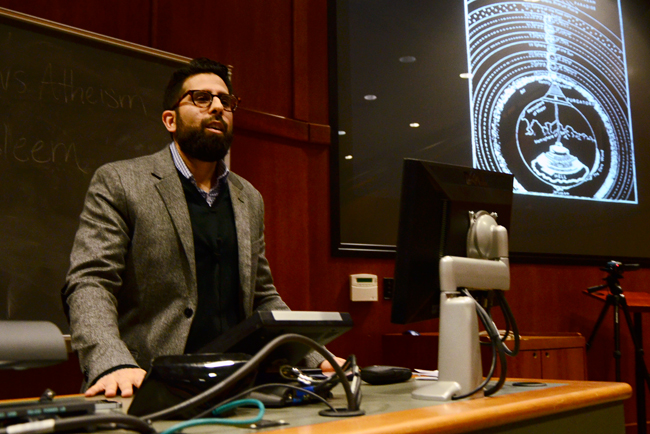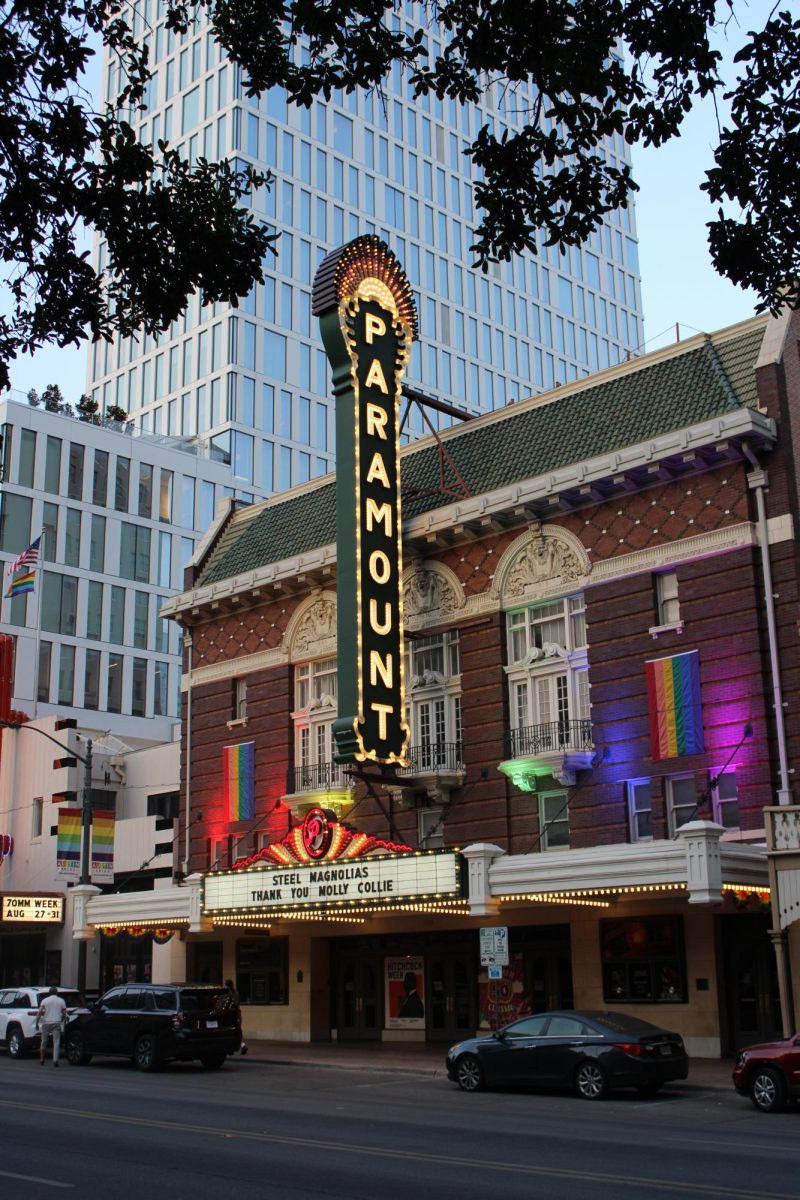Many people form their religious beliefs — or choose not to believe in any higher power at all — based primarily on their life experiences, Fahad Tasleem, a sheikh and public speaker, said in an on-campus lecture Thursday.
In the lecture, which the Muslim Student Association hosted, Tasleem spoke about how epistemology — a field which explores how people know what they know — is important when trying to comprehend how people come to hold different perspectives on religion. The questions epistemology asks are also useful in the fight to end Islamophobia, a fear of Islam, Tasleem said.
“One thing we don’t think about is how we’ve been brought up or if there is, what’s known as, epistemological biases [in your life],” Tasleem said. “It’s how you know what you know. It comes down to how you know what you know is true, and that conclusion has some sort of bias in it.”
Anyone can be biased against other’s beliefs, according to French junior Travis Anderson, an atheist, who said he always tries to avoid bias by keeping an open mind about religion.
“I’m always open to idea of religion,” Anderson said. “There’s this spirituality that I feel all religions share and that I share, as well. You should know about other cultures. Even if you completely disagree, because if you don’t, you start stereotyping or start having misconceptions.”
Misconceptions and bias about Islam are very prevalent, especially in the wake of the UNC Chapel Hill shooting, where three Muslim students were killed, said Rawand Abdelghani, psychology junior and president of the Muslim Student Associtation.
“You can be in a classroom with people of ten different faiths, or someone of no faith, and if you don’t have even that basic understanding or learn how to tolerate people, I feel like you will run into many problems,” Abdelghani said. “People learning about other religions … that will create understanding and create a platform for peace.”
In order to leave behind misconceptions, you have to gain knowledge, and for Muslims, that usually means reading and studying the Quran, Tasleem said.
“One of the best cures for any sort of bias or bigotry is education. That’s why I want people to go back to the Quran and study it,” Tasleem said. “The more knowledge you have — and this is true whether we’re talking about Muslims, whether we’re talking about any other sector of people that we might have biases towards — the more we know about that person the more prejudice will be done away with.”





















